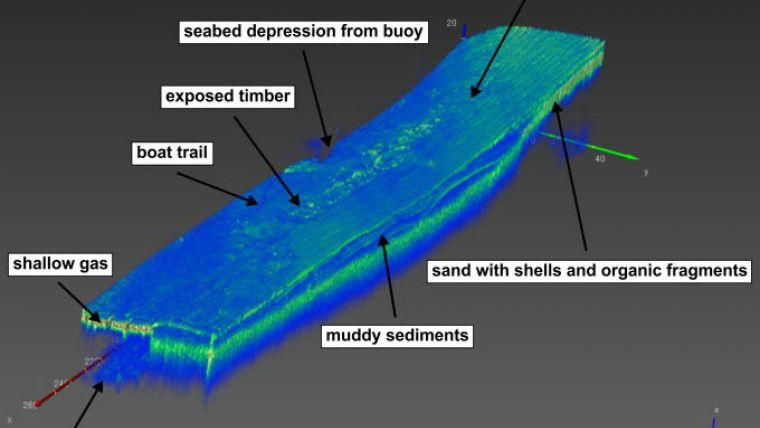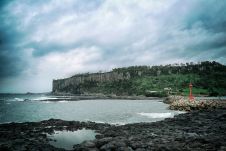VLIZ Invests in Three Instruments for Marine Research
A measuring system for wind-driven sand transport, a set-up for acidification experiments with algae and a multi-transducer parametrical echosounder are the three new research instruments that will be purchased by the Flanders Marine Institute (VLIZ, Belgium) for marine research in Flanders and its surroundings. These instruments were selected by the Scientific Committee through a call for proposals to invest in the marine research infrastructure of VLIZ in 2015.
The multi-transducer parametrical echosounder (Innomar SES-2000 Quattro) provides ultra-high resolution three-dimensional acoustic data of the seabed and the shallow subsurface. The instrument is unique concerning its high level of detail in mapping the upper meters of the subsurface. This opens up possibilities for new marine research subjects in archaeology, sedimentology, geology, building technology, hydrodynamic, geotechnology and ecology. This proposal received support letters from 21 research groups, institutes and companies distributed in Belgium and Europe.
The acquisition of a measuring system for aeolian sand transport was presented by the Flanders Hydraulics Research, the department Hydrology and Hydraulic Engineering (Vrije Universiteit Brussel) and the department Civil Engineering (Katholieke Universiteit Leuven). This measuring system will gain a clear insight into the morphological evolution of beaches and dunes. These are part of the coastal protection that is under the influence of urbanisation and climate change. The system is a combination of several devices measuring distinct parameters including wind, gradation of sand, vegetation, bathymetry/topography and moisture.
The proposal to invest in a set-up for acidification experiments with algae at the Marine Station Ostend (MSO) was submitted by research groups of the University of Ghent including the Phycology, Marine Biology and the Environmental Toxicology and Aquatic Ecology research group. Using this set-up, the effects of acidification and/or temperature on the physiology of certain species of weeds can be investigated. Some parameters that could be studied are: growth, photosynthesis, calcification and accumulation of certain substances.
As it applies for all equipment and research infrastructure of VLIZ, the three new instruments will be put at the disposal of the Flemish and international community of marine researchers.
Image: SES-2000 quattro parametric sub-bottom profiler data example showing a partly buried Viking Age wooden construction. Data rendered for 3D visualization. Image courtesy: Innomar.














